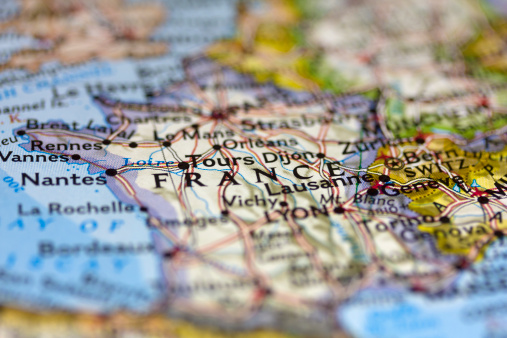Standard & Poor’s Ratings Services has downgraded its sovereign credit ratings of France. The move was pushed out in the middle of the night in America, which is the morning hours in Europe. It is also a move which all European nations need to watch rather closely when it comes to how they intend to govern, regulate, and tax. In short, the mistakes of France should be considered a benchmark of what not to do for its neighbors.
S&P lowered its unsolicited long-term foreign and local currency sovereign credit ratings on the Republic of France down to ‘AA’ from ‘AA+’ and it affirmed the ‘A-1+’ short-term ratings. France’s outlook is now stable, implying that the probability of that rating being raised or lowered in the next two years is less than one-in-three.
Similar to the United States, France was already no longer among the eleven nations with perfect credit. It should also be noted that this downgrade is on the heels of a October 23 report from S&P declaring that the French recession had ended.
S&P is now targeting that France’s net general government debt will peak at 86% of GDP in 2015, as well as that France’s gross debt will be above 93% of GDP by the end of 2015. S&P also is now projecting that real GDP growth will be close to zero in 2013 and that the cyclical recovery will average just over 1% for 2014 and 2015.
Another take is that France’s unemployment rate could remain above 10% until 2016, versus an average of 8% to 9% prior to 2012. Please note, the most recent table from The Economist shows that France’s unemployment rate was 11.1%.
The Friday research report said,
“We believe the French government’s reforms to taxation, as well as to product, services, and labor markets, will not substantially raise France’s medium-term growth prospects, and that ongoing high unemployment is weakening support for further significant fiscal and structural policy measures. Furthermore, we believe lower economic growth is constraining the government’s ability to consolidate public finances.”
It was interesting that Francois Hollande was not targeted directly. He should have been when it is frankly obvious that his policies originally proposed have failed. It probably sounds great to hear that curbing austerity measures will be countered by higher taxes on the wealthy. But what happens when those tax policies become so bad that companies declare firings, when soccer players strike over taxes, and when your nation’s celebrities make a public move to other countries over the taxation?
France has also been among the most strict when it comes to financial regulation. The move to tax transactions grinds the markets to a halt. This downgrade came on the heels of a European Central Bank interest rate cut as well, which feels a bit like a sign that lower rates might have limited impact.
24/7 Wall St. might even dare to ask if S&P just upgraded Nicolas Sarkozy in this downgrade of France. S&P’s full downgrade can be accessed here.
It’s Your Money, Your Future—Own It (sponsor)
Retirement can be daunting, but it doesn’t need to be.
Imagine having an expert in your corner to help you with your financial goals. Someone to help you determine if you’re ahead, behind, or right on track. With SmartAsset, that’s not just a dream—it’s reality. This free tool connects you with pre-screened financial advisors who work in your best interests. It’s quick, it’s easy, so take the leap today and start planning smarter!
Don’t waste another minute; get started right here and help your retirement dreams become a retirement reality.
Thank you for reading! Have some feedback for us?
Contact the 24/7 Wall St. editorial team.


